As I write this, I’m in the final stretch of the fourth month of my Foundations project.1
This month’s focus is on food.
Part of my goal for each month is to read as much as I can about each topic, both for my own knowledge and to try to summarize the essential expert recommendations for those participating in the course.
Food is a particularly tricky subject. Nutritional science is complicated—and often conflicting. Popular media on this topic is a cesspool of misinformation, hype, and some downright dangerous advice being presented as the road to good health.
Still, I wanted to do my best to get it right. Given my complete lack of credentials in this area, that meant focusing my reading more on textbooks (I read two, each 800+ pages), popular books noted for their scientific accuracy (I read three specifically for their high ratings from the non-profit Red Pen Reviews), and those written by scholars I respect. I also made heavy use of the podcast Sigma Nutrition, which presents academic discussions of nutritional research.2
I can’t say for sure that I got it all right. But after having read a few thousand pages and listened to many hours of scientific discussions, I suspect that much of the residual confusion I have is likely embedded in the field itself rather than a simple misunderstanding on my part.
The 3-Minute Summary of What I Learned (and Unlearned)
In terms of concision, it’s hard to beat Michael Pollan’s overall eating advice:
“Eat food. Not too much. Mostly plants.”
Despite the complexity and contention of the underlying research, most advice for eating well is pretty basic:
- Eat more whole foods.
- Eat more fruits and vegetables.
- Eat more fiber.
- Eat a range of different food types and foods within each type.
- Eat more whole grains.
- Go easy on the refined grains, added sugars, processed meat and saturated fat.
A seventh recommendation, though not universally agreed to, might be “Try to eat a bit more protein, particularly from plant and marine sources.”
But, in addition to these fairly uncontroversial ideas, I also found some repeated ideas that surprised me somewhat:
- Egg yolks aren’t bad for you. Dietary cholesterol has a pretty minimal effect on blood cholesterol. Egg yolks famously have a lot of cholesterol, so they were unnecessarily vilified.
- Too much saturated fat is still bad for you. Trans fats are worse, of course, but most sources recommend swapping solid fats in your diet, like lard and butter, for healthy oils to reduce the risk of heart disease.
- Carbs aren’t bad for you. Carbs have replaced fat as the dietary villain of our age, but carbs are the body’s preferred energy source. Unrefined grains and carbs from fruit and vegetables are a boon for health.
- Most additives in food are safe. Whole foods are good, of course, but the belief that small amounts of preservatives or chemical food additives are the source of ill health seems largely unfounded. Processing strips nutrients and reformulates foods to make them easier to overconsume, but the additives themselves are largely harmless.
- Coffee and chocolate are healthy. In moderation, coffee appears to be a net positive for health. Chocolate, particularly dark chocolate, seems to be good as well. Chocolate has a lot of calories, so it’s easy to overconsume, but the type of saturated fat present in cacao isn’t harmful.
Despite this, there are still some controversies I couldn’t find a straight answer on. It’s still unclear to me whether whole milk or low-fat milk is better for health.3 I don’t know whether sodium reduction is mostly an issue for those with hypertension or whether cutting it is worthwhile if your blood pressure is normal.4 Obesity is also a major driver of diet-related illness, so it’s not clear to me whether the recommended dietary interventions promote health by reducing your chances of gaining weight, or by being generally good for lean people.5
Brief Notes on the 10 Books I Read
My favorite book of the month was Walter Willett’s Eat, Drink and Be Healthy. Not only is it the most highly-rated book in terms of scientific accuracy and healthfulness on Red Pen Reviews, but Willett is the world’s most-cited nutritional researcher.
The most engaging/fun read of the month was a re-read, Michael Pollan’s In Defense of Food. His high-level recommendations on eating are difficult to fault, and there is much to say in favor of his philosophy of common-sense nutrition. I disagree with Pollan on some research he cites, but I feel like you’d hardly be led astray if you stick with his practical takeaways.
Now, let’s look at some notes from each book:
1. Eat, Drink, and Be Healthy by Walter Willett
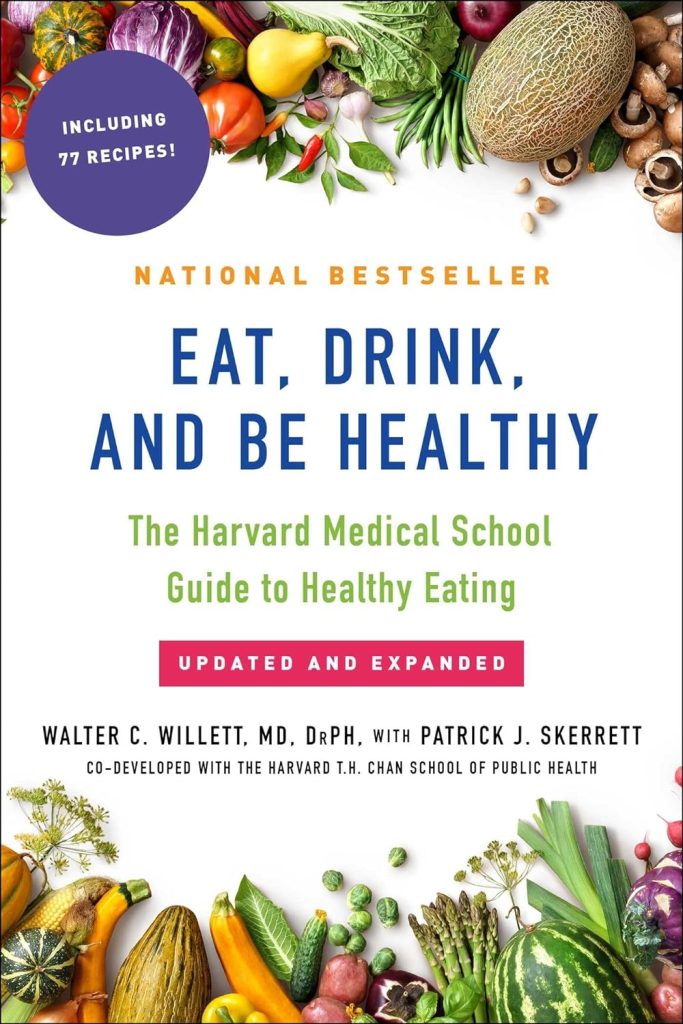
Co-developed by the Harvard T.H. Chan School of Public Health, this book is perhaps the most scientifically reputable, popular diet book available today. Willett, whose work on the Nurses’ Health Study made him one of the world’s most-esteemed nutritional epidemiologists, provides his perspective on what science says we should eat to be healthy.
Most of the recommendations fit within the Mediterranean diet pattern—so-called because the famous Seven Countries Study found that inhabitants of Crete had much lower rates of heart disease, owing to their eating whole grains, lots of vegetables and seafood, little red meat and plenty of olive oil.
Despite its impeccable credentials, this book does depart in some ways from some of my other reading on nutrition. Willett continues to recommend moderate alcohol consumption for health, something that more recent data seem to be undermining.6 Similarly, Willett argues for reducing milk consumption across the board, whereas both textbooks I read argue for making milk a regular part of the diet for its calcium and vitamin D and choosing low-fat options to avoid its saturated fat. Willett also advocates for a daily multivitamin, something other sources have questioned. Given the quality of the source, it’s hard to say whether Willett or the textbook is correct on the issues where they diverge, so I chalk those areas up to uncertainty amongst qualified experts.
2. Eat, Drink, and Weigh Less by Mollie Katzen and Walter Willett
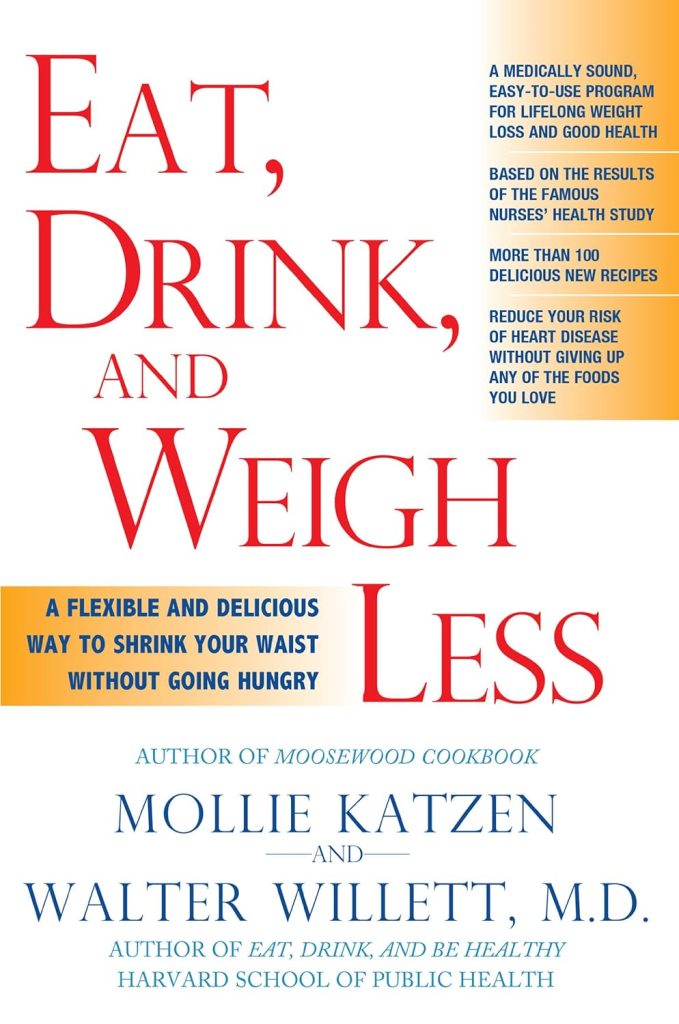
While the previous book is an excellent summary of the state of nutritional science, it’s not a weight-loss book, and parsing it for weight-loss recommendations might take some effort. Fortunately, Katzen and Willett have translated the dietary recommendations into a specific plan for someone who wants both to eat healthier and lose weight.
The basic strategy of all weight-loss diets is caloric restriction. However, reducing calories increases the risk of missing out on essential nutrients, which is a particular risk of fad or crash diets. This book might be worthwhile if you want to lose some weight in as healthful a way as possible.
3. Understanding Nutrition by Ellie Whitney and Sharon Rady Rolfes
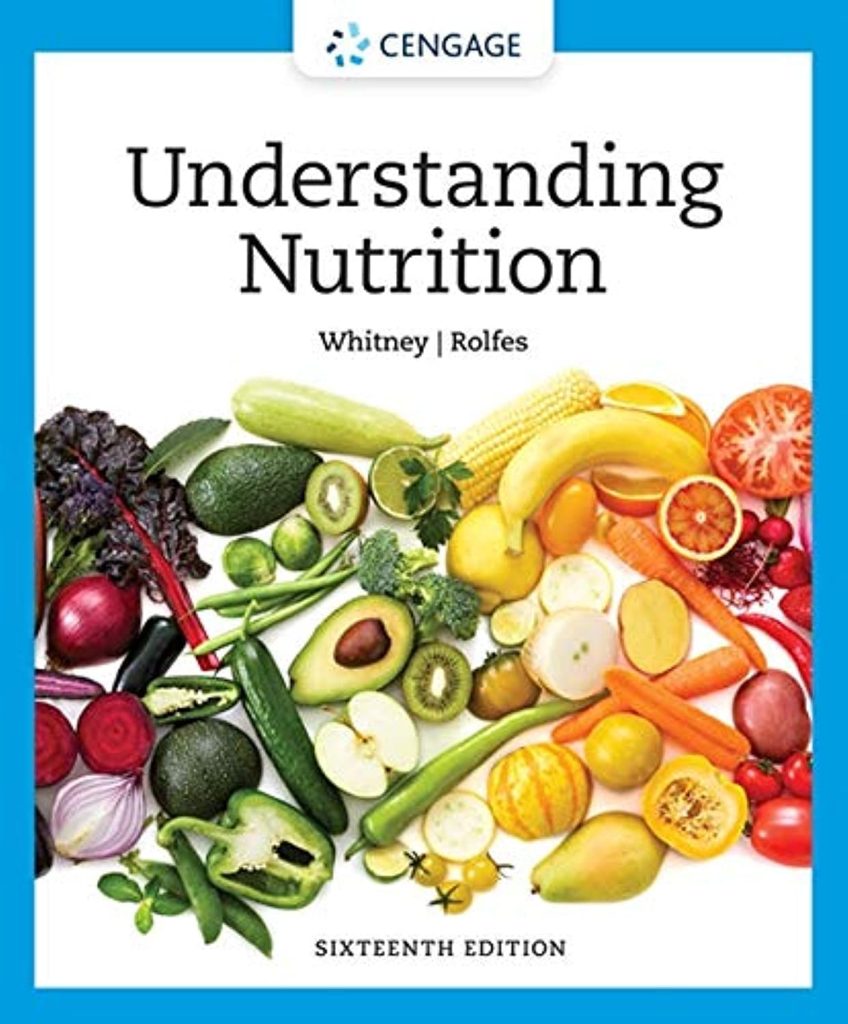
This was my favorite textbook. While the detailed explanations of the biochemistry of energy metabolism might be unnecessary for most people, I love explanations that go deeper into the science.
One thing I didn’t know, for instance, was that many of the body’s cells rely on glucose for energy, but the body cannot make glucose from fat (it can make glucose from protein). Fat burning proceeds during low-intensity daily activity, but most physical activity requires some glucose for performance. This was one of many warnings against extremely low-carb diets I read in the more “official” sources I read for the month.
Interestingly, although the style and specific content covered differed between the textbooks I read, the recommendations for health in both textbooks were practically identical. I suspect this is because both are drawing on the same original source, rather than the authors independently arriving at the same conclusion. It doesn’t mean the advice is without controversy, but it was at least satisfying to note there does appear to be some nutritional orthodoxy that one can point to as being consistent.
4. Academy of Nutrition and Dietetics Complete Food & Nutrition Guide by Roberta L. Duyff
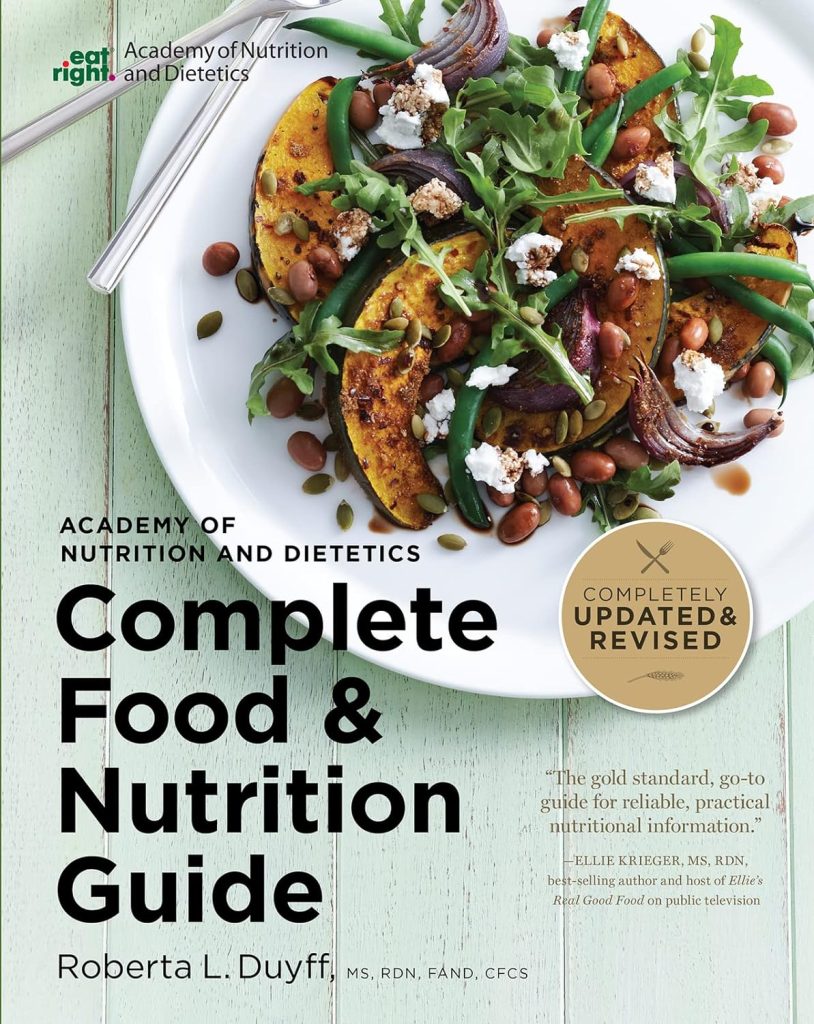
This book took me most of the month to read. I jokingly referred to it as “the phone book,” owing to its heft, as I lugged it between my home and office. Like a phone book, it was also far from the most exciting read. I can’t fault the author here, as it’s meant to be a reference book, so I don’t believe anyone was expecting it to be read cover-to-cover. But, that was exactly what I did, and I’m glad I made it through.
This book covers nearly any possible question you might have about food, ranging from the safety of artificial sweeteners to the proper handling of poultry, different types of eating disorders to the efficacy of sports supplements. Impossible to summarize, “the phone book” will sit on my shelf for any time I need to look up a particular nutritional question.
5. Everything Fat Loss by Ben Carpenter
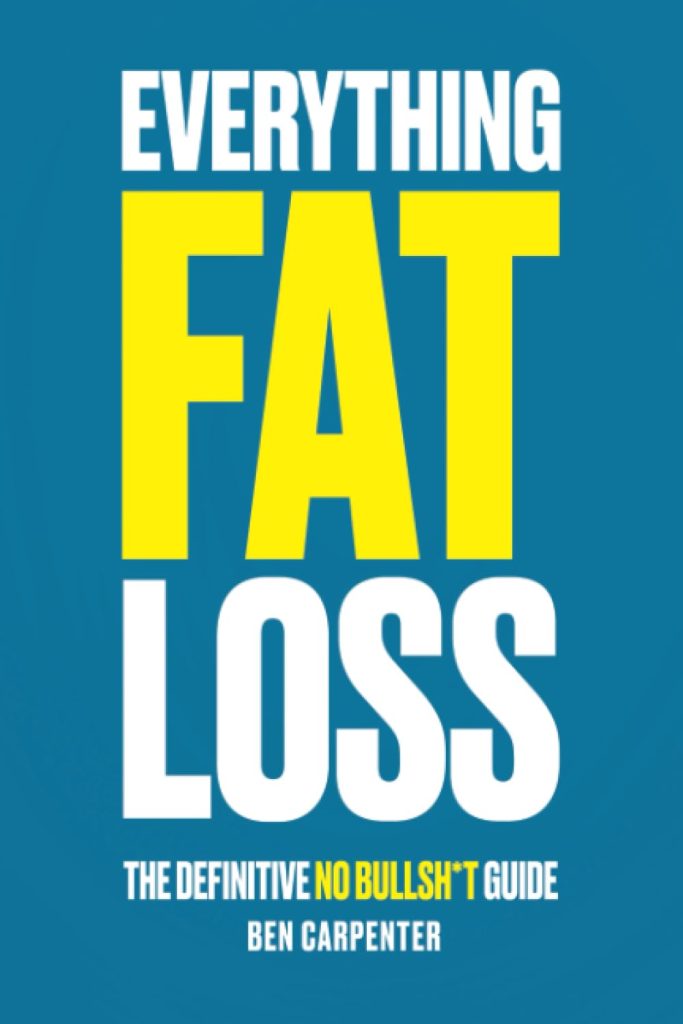
Weight loss, perhaps even more so than general nutrition advice, is rampant with false promises, inflated hype, dangerous diets and outright scams.
I found Carpenter’s book after seeing that it received the second-highest rating on Red Pen Reviews, after Willett’s book.7 This book is like an encyclopedia of body composition strategies, evaluating everything from low-carb to low-fat, from intermittent fasting to weight maintenance.
While the book is useful for its specifics, the general message is pretty simple: weight loss occurs through a calorie deficit. There are many different ways to achieve this, so finding a way that works for you, your palate and your mental health should be the priority.
6. The Hungry Brain by Stephan Guyenet
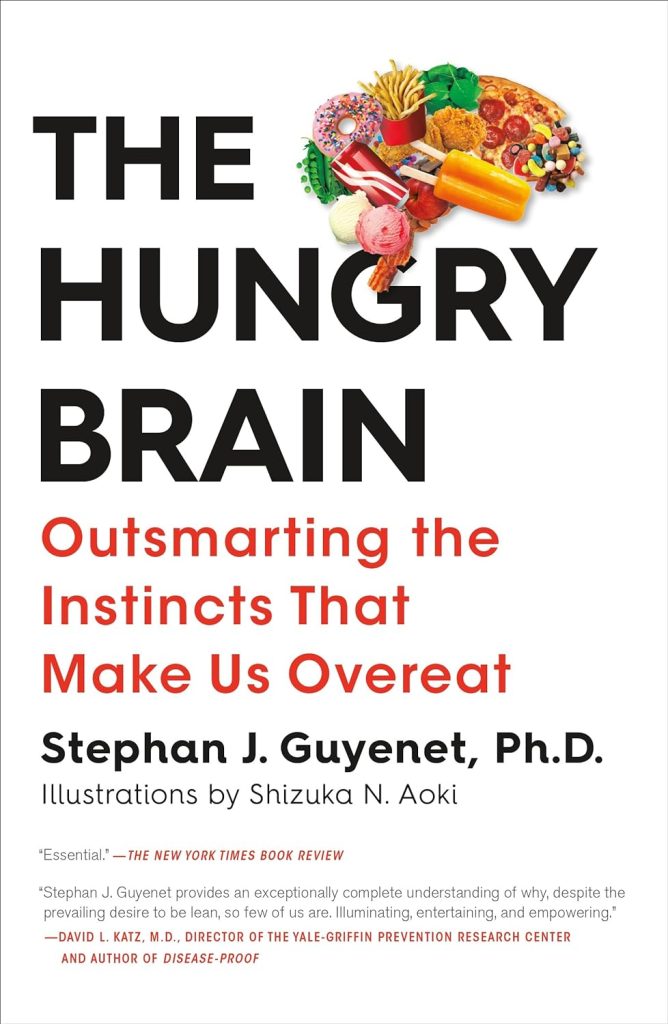
I first read this book several years ago and loved it so much I wrote an entire review and had Dr. Guyenet on my podcast for an interview.
Guyenet makes a compelling case that the organ responsible for the obesity epidemic is the brain. We have evolved fascinating and complicated mechanisms to regulate our feelings of hunger, fullness, satisfaction and food reward that drive us to eat an appropriate amount. Except in our modern environment, these circuits often push us to maintain much more fat than is healthy.
Unfortunately, the takeaways from Guyenet’s work are hardly the inspiring you-can-do-it messages of most diet books. Guyenet argues that, to a large extent, we overeat because food today is more tasty, plentiful, convenient and varied than it used to be, all of which encourages us to eat more than we should.
7. The Good Gut by Justin Sonnenburg and Erica Sonnenburg
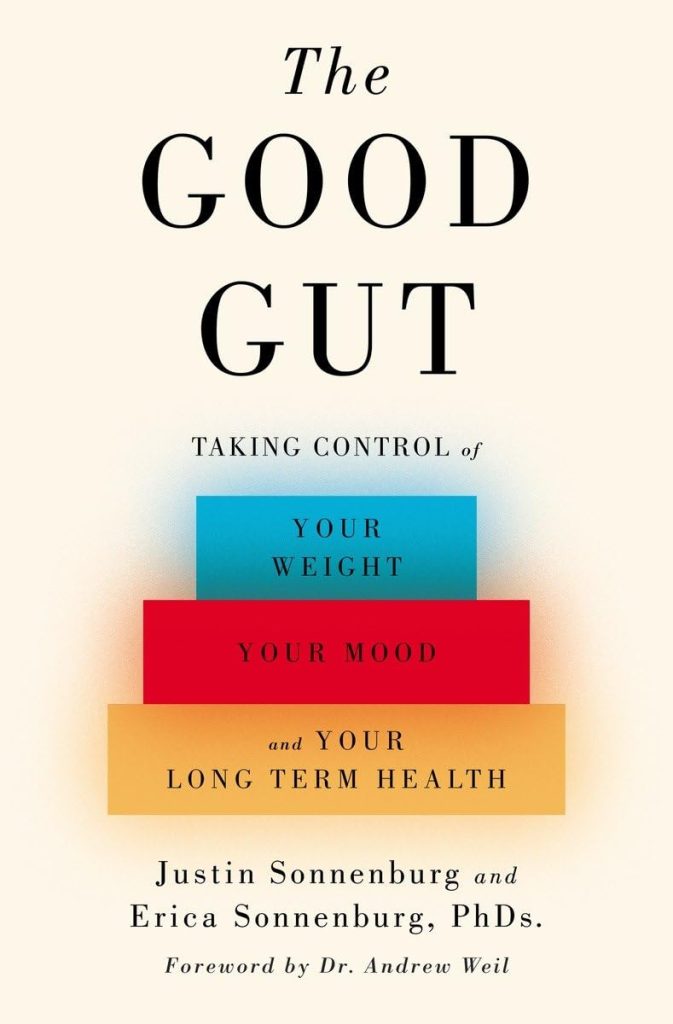
The gut microbiome is one of the hot topics in nutritional research these days.8 The authors point to speculative links between our bacterial residents and allergies, obesity, memory and depression.
I found the book interesting, and it made me keen to add a little more kimchi and yogurt to my diet. But it didn’t feel solid enough to inspire changes to my diet that weren’t already suggested elsewhere. File this one under speculative.
8. The Endurance Diet by Matt Fitzgerald
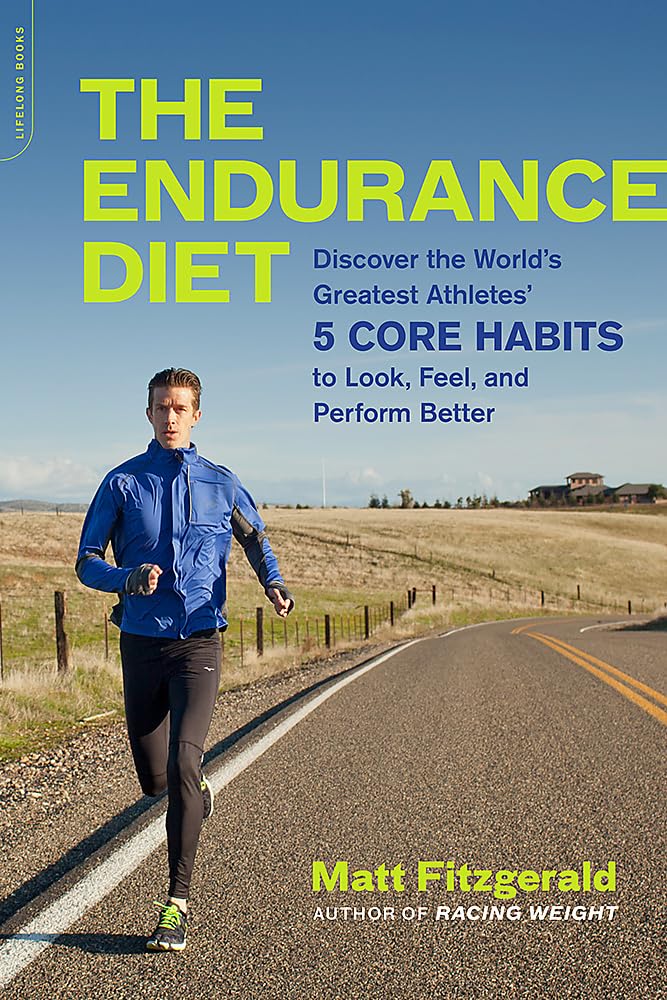
Sports nutritionist Matt Fitzgerald summarizes the diet for optimal performance, which is followed by nearly all elite endurance athletes (and recreational runners and cyclists should adopt). He boils it down to five habits:
- Eat everything. Don’t omit major food categories, such as grains, meat or dairy.
- Eat quality. Eat mostly whole, unprocessed and unrefined foods.
- Eat carb-centered. Carbs are the best fuel for endurance.
- Eat enough. While most of us eat too much, many athletes (especially women) eat too little. Worries about weight should take a back seat to eating enough to power performance.
- Eat individually. Your diet must work for you, your culture and your tastebuds.
Overall, I found a lot to like about Fitzgerald’s book, although it’s clearly aimed at avid runners, cyclists, swimmers and other athletes rather than the generally-sedentary population at large.
9. The New Power Eating by Susan Kleiner with Maggie Greenwood-Robinson
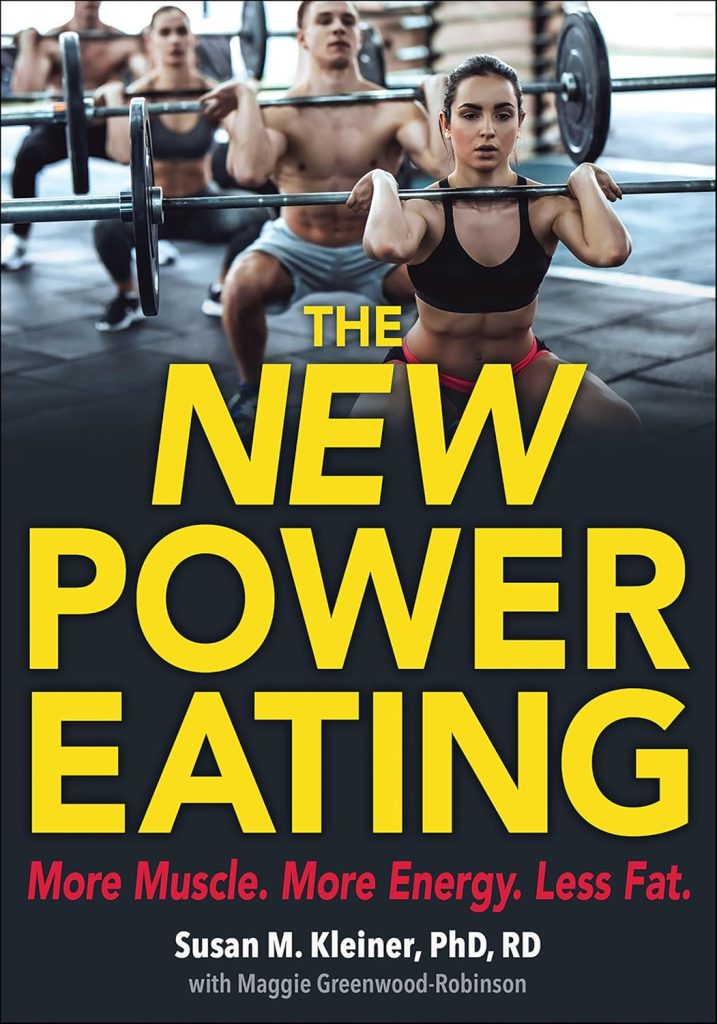
To round out the sports-centered nutrition books, I wanted to see how prescriptions vary for strength athletes, whose main goals are building muscle and power rather than aerobic fitness.
Fortunately, the recommendations are quite similar. Carbs are also important for strength training since glucose, not fat, can be broken down anaerobically in muscle tissues for the power needed for hard workouts, and hard workouts are needed to provide the muscles with appropriate stimulus to grow.
The main difference is that the authors of this book focused, somewhat predictably, on eating more protein than was recommended in the guidance for endurance athletes.
10. In Defense of Food by Michael Pollan
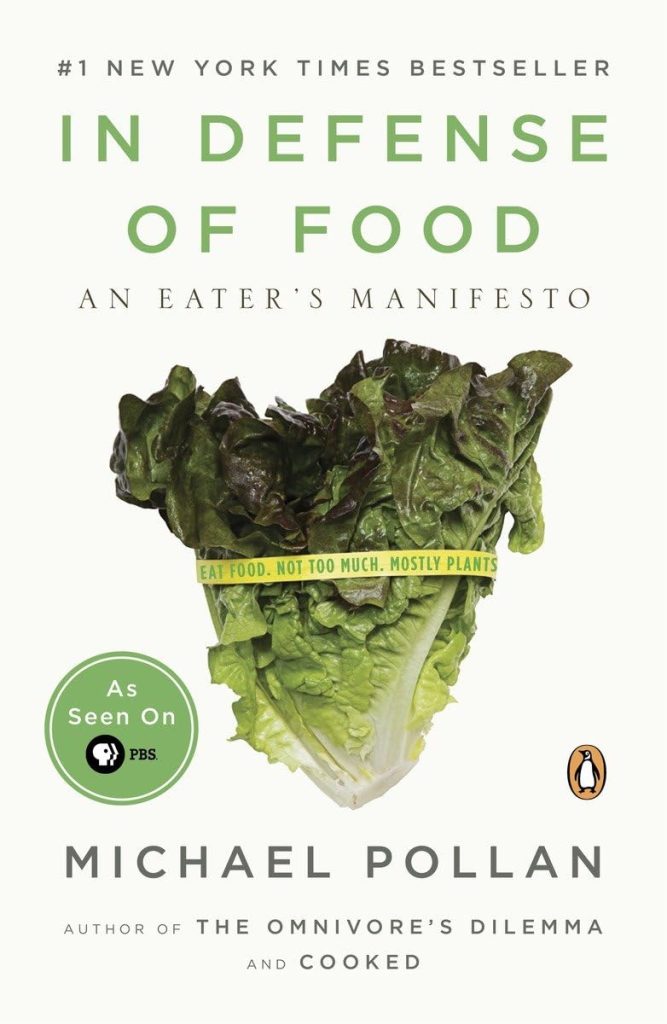
I first read this book years ago, after liking Pollan’s The Omnivore’s Dilemma. At its heart, I basically agree with Pollan’s advice and overall philosophy: eat real food, eat more plants, eat in moderation, and focus on cooking good food rather than consuming ultra-processed junk.
However, after reading many other books, I feel some of Pollan’s tirades miss the mark. He spends a lot of time writing about how the “lipid hypothesis” that nutritionists recommended for years has been debunked. But then he casually flips back and forth between correctly rejecting the idea that all fat is bad and presenting the false idea that nutritional science has decided that saturated fats aren’t worth worrying about (the consensus is that they are).
Similarly, Pollan gives a lot of space to both Gary Taubes and T. Colin Campbell. Taubes’ insistence that sugar is the cause of the obesity epidemic (as opposed to excess calorie consumption, in general) is probably false. Campbell’s advocacy of a strict vegetarian diet, in turn, is probably based on some shaky science.
That said, Pollan articulates better than anyone else I read the philosophy of eating, not just to optimize nutrition, but for living better. That means cooking real food, using whole ingredients with less processing, and trusting more traditional diets rather than scientifically engineered concoctions.
Footnotes
- I wrote this post in October 2024. I’m working three months ahead of the Foundations course and articles published here to make sure I have time to finish my research before I write course content. I decided to publish this one a little in advance because we’ll be holding a new session of Life of Focus in just over a week.
- I wouldn’t normally recommend a podcast in place of a scholarly reference source, but I found the detailed discussions of nutritional research to be much more nuanced than most other sources, including textbooks, I found elsewhere.
- Textbooks advocate for more milk consumption, but choosing low-fat varieties. Walter Willett advocates for less milk in general. In contrast, authors like Stephan Guyenet and a few others point to emerging research that whole milk consumption might be beneficial for health.
- Increased sodium is related to hypertension, which is both common and increasingly common with age. However, the textbooks note that this is perhaps a greater worry for those who are particularly sensitive to sodium’s effects. Given the difficulty of getting sodium intake to within dietary prescriptions, I wasn’t sure whether it was an area that needed improvement if I have normal blood pressure.
- For instance, I encountered some research suggesting that even added sugars, the villain du jour of popular dietary advice, may not actually be harmful if they don’t lead to caloric excess. In contrast, the prescription to avoid processed red meats seems to be related to the risk of colon cancer, independent of effects on weight. For other recommendations, this distinction was less clear.
- For clarification, it’s long been known that excessive alcohol consumption is bad for you. But until recently, it was believed that moderate consumption (e.g., 1-2 glasses of wine per day) might have heart benefits that outweigh the cancer risks. More recent work, however, has failed to support this idea, finding that any alcohol consumption is bad for health.
- The only fault ascribed to this book by the reviewers seems to be that Carpenter suggests dieting may be worse for your mental health than research suggests.
- Poop is popular. Who knew?


 I'm a Wall Street Journal bestselling author, podcast host, computer programmer and an avid reader. Since 2006, I've published weekly essays on this website to help people like you learn and think better. My work has been featured in The New York Times, BBC, TEDx, Pocket, Business Insider and more. I don't promise I have all the answers, just a place to start.
I'm a Wall Street Journal bestselling author, podcast host, computer programmer and an avid reader. Since 2006, I've published weekly essays on this website to help people like you learn and think better. My work has been featured in The New York Times, BBC, TEDx, Pocket, Business Insider and more. I don't promise I have all the answers, just a place to start.